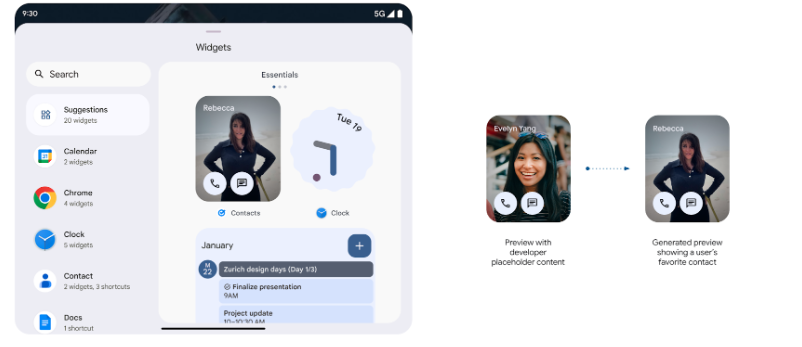What you need to know
- The second Android 15 beta release introduces “Private space,” allowing users to hide apps in a secure, separate profile, improving privacy.
- Additionally, apps can now request access only to recent photos instead of the entire library.
- New security measures also prevent malicious apps from running in the background or gaining unauthorized privileges.
- The update is available on select devices from various manufacturers, and it will be available over the air to those enrolled in the Android 14 QPR beta.
A day after Google’s I/O 2024 conference, the company released Android 15 Beta 2. This update packs major improvements in productivity, privacy, security, app performance, and battery health.
The latest build is up for grabs on select Google Pixel and many of your favorite Android phones from brands like Honor, iQOO, Lenovo, Nothing, OnePlus, OPPO, Realme, Sharp, Tecno, Vivo, and Xiaomi. We’re nearing a stable release, but if you’re eager for a sneak peek, check out this new beta.
Just like the last beta, Android 15 Beta 2 is packed with loads of new features. One cool addition is Private space, which lets you hide apps in a separate area, similar to Samsung’s Secure Folder. Google has been working on this feature since 2023, and it’s finally here.
Private space uses a separate profile, so apps you hide there can’t be seen by others or run in the background when locked. You can even set a different lock for it than your main phone. Plus, you can keep your private stuff separate but still share it with other apps when you need to.
Another cool update is that apps can now ask for access to just your most recent photos, not your whole library. This is handy for those times when apps seem to want your entire life story in pictures.
Google has also announced that dav1d, the popular AV1 software decoder from VideoLAN, is now available for Android devices that don’t support AV1 hardware decoding. This means smoother playback of high-quality videos, even on older phones.
Even better, this new decoder will be the default for everyone soon, and some older phones (back to Android 11) can get it too through Google Play updates.
Android 15 Beta 2 also makes multitasking even easier. You can keep a taskbar handy for switching apps on the fly by pinning it on the screen, and you can even save your favorite split-screen combos for instant access.
The latest beta also tweaks picture-in-picture (PiP), making transitions smoother when entering PiP mode. Additionally, Google is spicing up widgets by offering personalized previews. Apps targeting Android 15 can now supply Remote Views to the widget picker, updating the content to better reflect what users will see on their screens.

In Android 15, Google has made the predictive back feature a standard option, no longer hidden behind developer settings. This means smoother system animations like back-to-home, cross-task, and cross-activity will now be visible for compatible apps.
Health Connect is expanding its support to include new data types like skin temperature and training plans. Skin temperature tracking lets users store and share precise temperature readings from wearables or other devices. Meanwhile, training plans provide structured workout routines designed to help users meet their fitness goals.
Google has also introduced a new feature in Android 15 Beta 2 that limits the runtime of certain foreground services to six hours. This change is aimed at improving battery health.
Google is beefing up security in Android 15 by giving users greater control to prevent malicious apps from operating in the background and bringing other apps to the foreground. This update aims to block malicious apps from gaining elevated privileges and exploiting user interactions.
Since Android 10, restrictions on background activity launches have been in place. However, Google has identified that “task hijacking” attacks can still bypass these limitations. To counter this, Google has introduced a new security measure in Android 15: a flag that prevents apps that don’t match the top user ID on the stack from launching activities, thereby mitigating the risk of such attacks.
Android 15 has raised the minimum targetSdkVersion required for app installations from 23 to 24. This change ensures that all apps meet newer standards for performance and security.
Devices already enrolled in the Android 14 QPR beta program will automatically receive an incremental update to Android 15 Beta 2 over the air. If you don’t have a supported device, you can use the 64-bit system images with the Android Emulator in Android Studio to test the new features.
👇Follow more 👇
👉 bdphone.com
👉 ultraactivation.com
👉 trainingreferral.com
👉 shaplafood.com
👉 bangladeshi.help
👉 www.forexdhaka.com
👉 uncommunication.com
👉 ultra-sim.com
👉 forexdhaka.com
👉 ultrafxfund.com
👉 ultractivation.com
👉 bdphoneonline.com